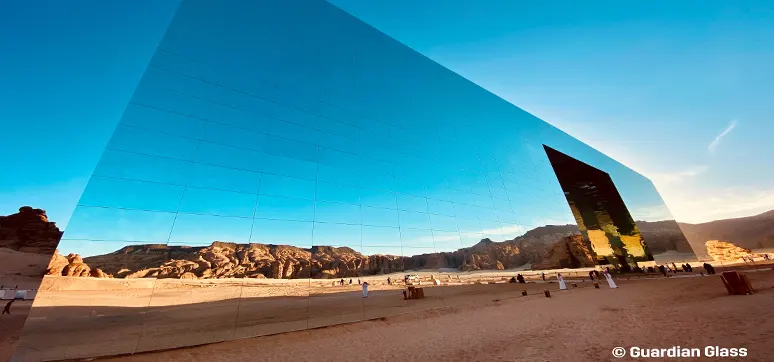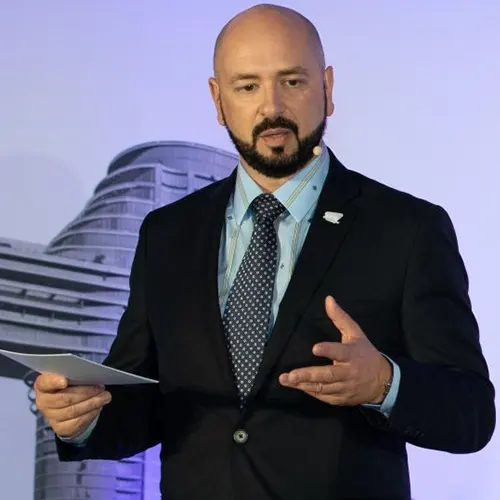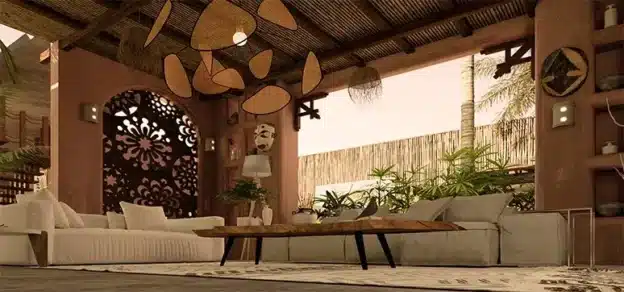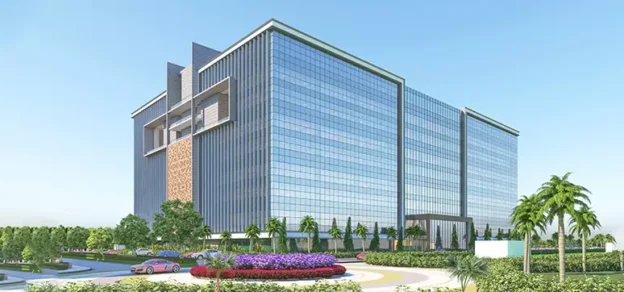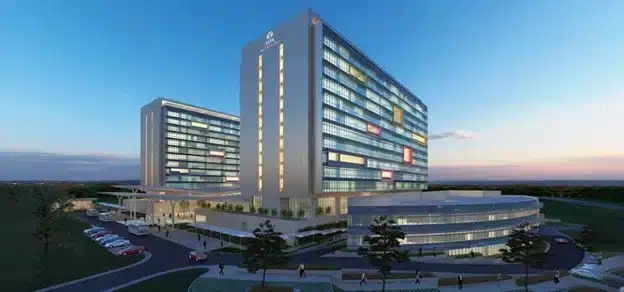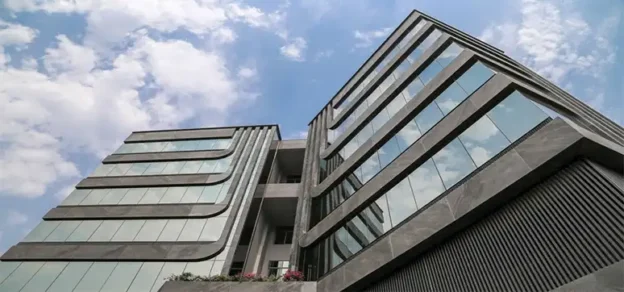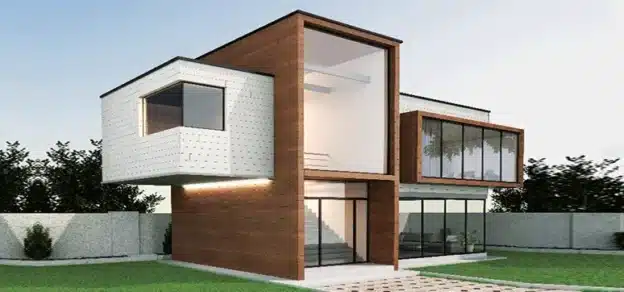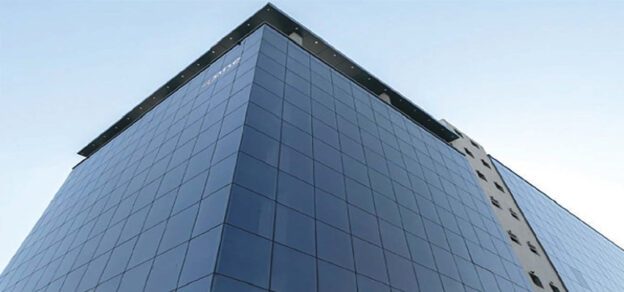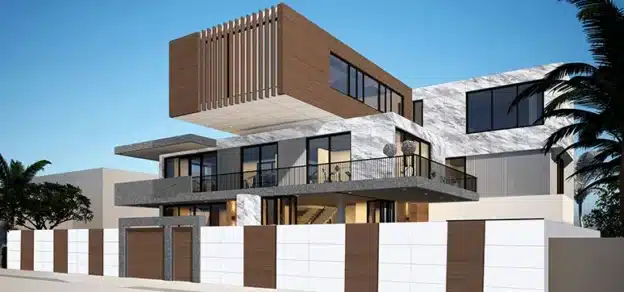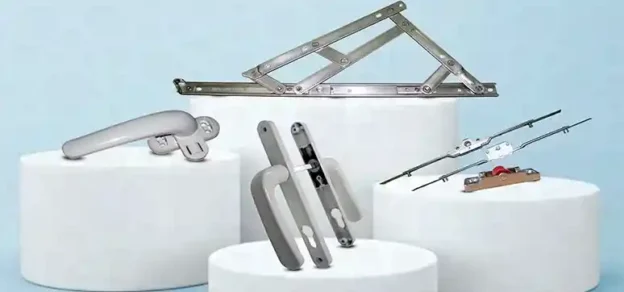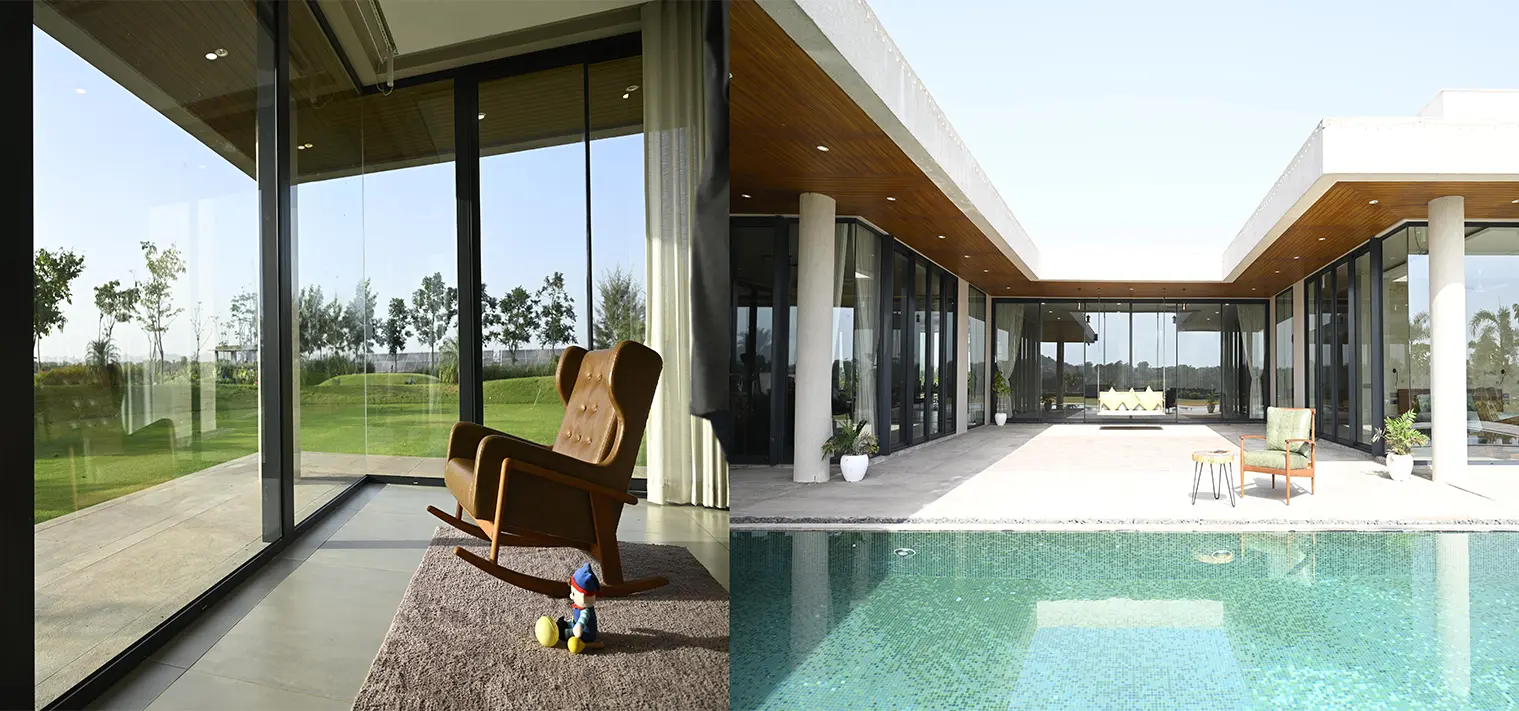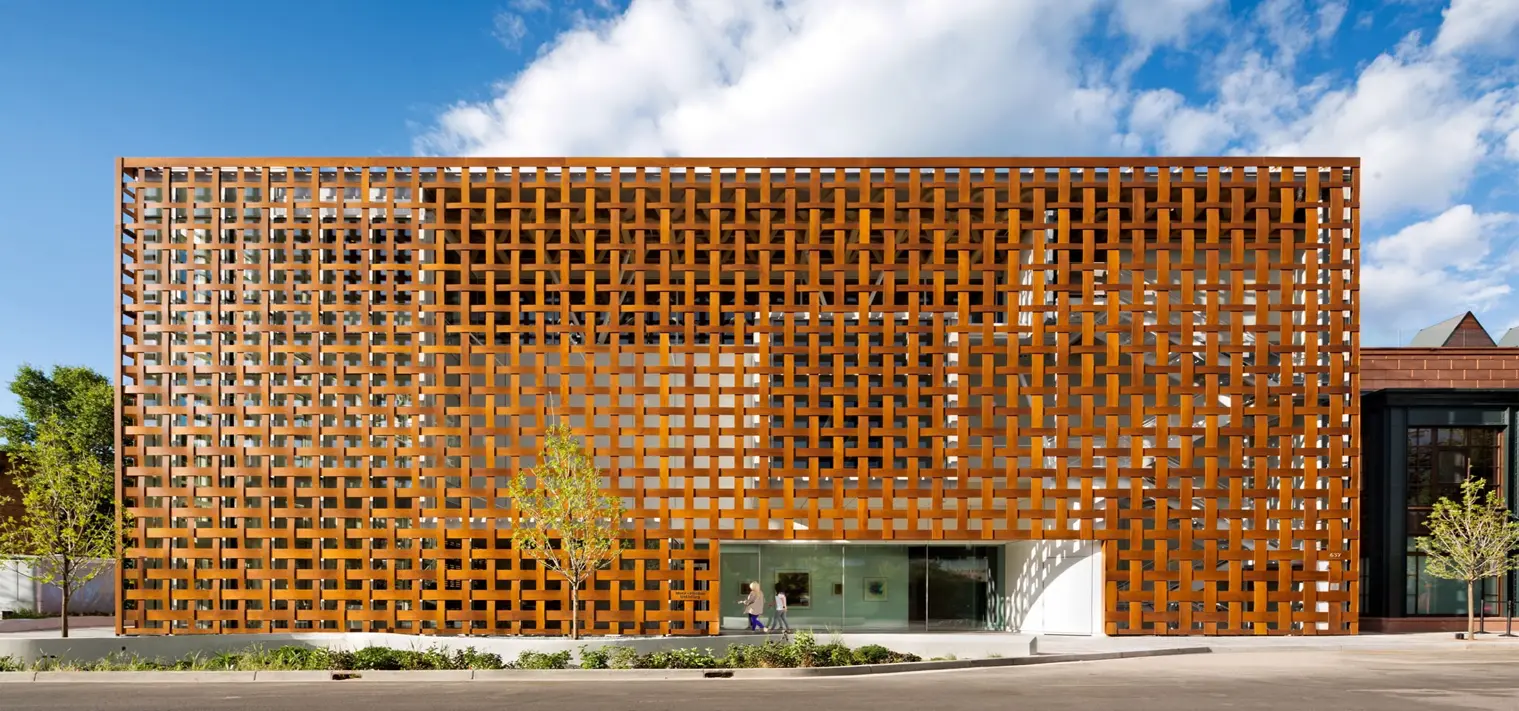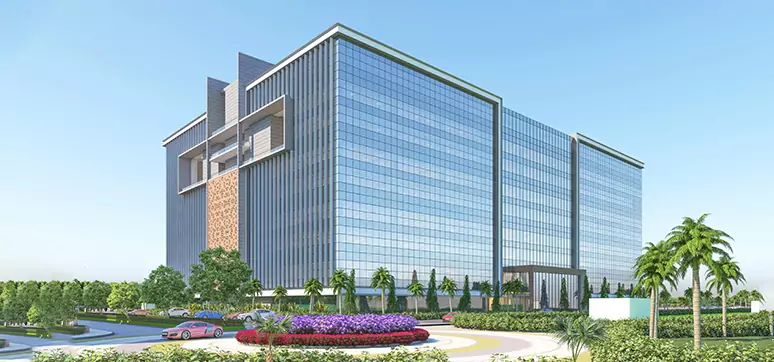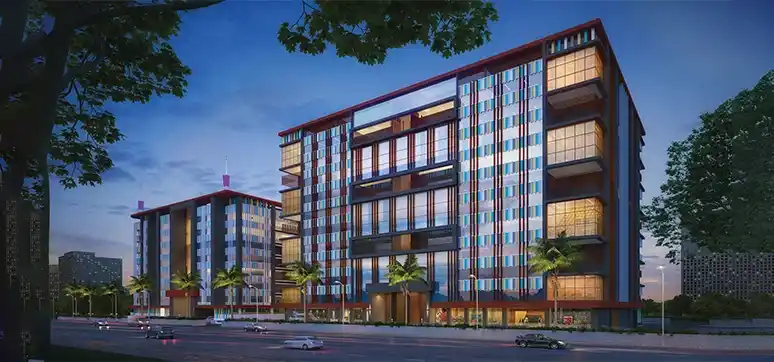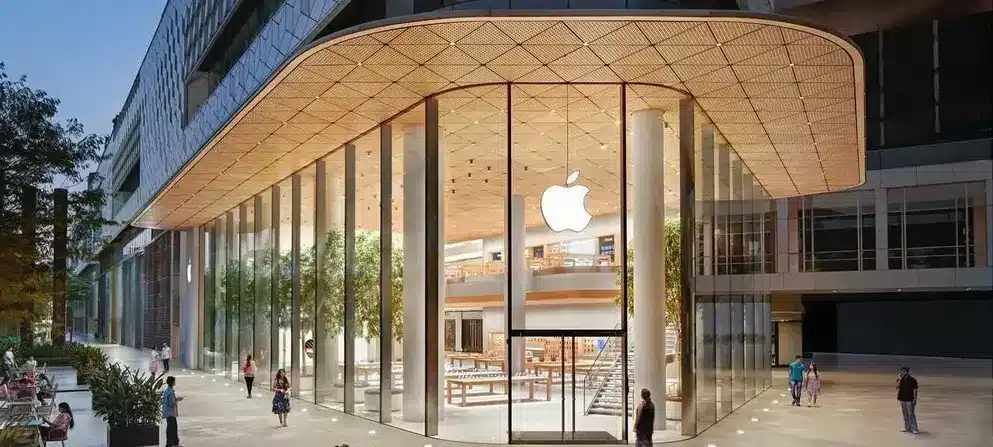An interview with Jasmin Hodzic, AME Director – Marketing at Guardian Glass about the journey of Guardian Glass, the products they offer in the market, the benefits of their products, and so on. Read the excerpts below
Brief about the history and objective behind Guardian Glass?
Guardian Glass has a heritage of matching the latest technologies to people’s needs. Perhaps this is no surprise once you realise we began as a windshield glass manufacturer for Detroit’s automobile industry. Not a place to succeed without having innovative ideas, strict quality control, and a relentless work ethic. On October 26, 1970, Guardian opened its first state-of-the-art float glass plant in Carleton, Michigan, becoming the first U.S. company in over 50 years to enter the primary glass market. Following this success, Guardian went on to construct glass manufacturing plants across the United States, then Europe, then globally across regions as diverse as Thailand, India, Brazil, Saudi Arabia, and Russia.
In 1983, we were among the first companies to develop low emissivity (low-E) glass, with a state-of-the-art magnetron sputter coating process – helping to improve the energy efficiency of architectural glass around the world. Since then, we’ve developed many unique products and bespoke solutions for clients. Including architects, fabricators, glaziers, cladders, interior designers, and homeowners.
Products offered by Guardian Glass.
Guardian Glass solutions can enhance building performance without sacrificing natural light. Changing temperatures during the day or between different seasons and across different climates, make it difficult to maintain a comfortable indoor environment. Guardian Glass has a variety of solutions that can be implemented depending on these climate conditions and a project’s goals.
The benefits of glass solutions by Guardian Glass:
- Energy efficiency: Consumer and industry awareness of operational carbon is growing within the building industry. Due to its energy-balancing properties, glass is key to helping reduce both heating and cooling needs, which in turn can reduce a building’s operational carbon. Our products also contribute towards achieving globally recognised green building program certifications.
- Financial and energy efficiency benefits: Solar control glass minimises the amount of heat energy transmitted through the glass, helping to limit the high costs of air conditioning. Large window and façade surface also allow plenty of light to reach deep into the building’s interior, therefore avoiding excessive use of artificial lighting.
- Acoustic insulating glass: Acoustic insulating glass combines noise reduction with all the benefits of laminated safety glass. Other features such as solar control, thermal insulation, or decorative effects can be added also. To reduce noise between rooms inside a building, acoustic insulating glass is also often used in partitions, doors, and windows. Acoustic insulation means better noise control. As urban areas are developed and expanded, noise pollution can become a real problem in buildings. Noise can be reduced so that people can be more comfortable in their living and work spaces.
-

35 storey Waves project with unitised curtain walls Safety: We all want reliable products that are safe to use. Glass is often also laminated to protect people from glass breakage, meaning the glass will stay and break into small, circular pieces rather than large, gagged shards. Glass can be used in many different ways to provide increased impact resistance, enhance safety and security, and even off er UV protection. Glass can also be heat treated to give it increased safety features. Tempered (toughened) glass is used when high strength, thermal resistance, and safety are crucial. Tempered glass provides an additional safety characteristic, as it tends to break into small, circular pieces rather than large, jagged shards.
- Aesthetics, transparency, colour, and reflection: Every glass project is unique, and the level of reflection, light transmission, or privacy varies. Whatever you need, glass can help you make it possible – from almost invisible transparent glass for stunning clarity and outstanding views, or translucent glass to create the perfect blend of privacy and light transmission. If it’s transparent glass you need, Guardian Glass can help.
Many interior and exterior projects need a crystal-clear transparent glass with reduced reflection. Our anti-reflective glass can be almost invisible, combining function and beauty to maximise visibility and minimise light reflection, for a virtually perfect and distortion-free viewing experience. Glass can bring colour and reflection to any environment. Creating decorative eff ects that add a new dimension to interior design or building façades. If you need a glass façade to have a distinctive appearance, then internal and external reflection, the use of colour, and changes in these properties in different light conditions can make the overall aesthetic beautifully complex.
- Different shapes and sizes: At Guardian, we are constantly developing products that satisfy and even exceed the demands of modern architecture, all to help push the boundaries of what’s possible. We can provide almost invisible glass for curved building envelopes with coatings that remain stable and secure. Glass can also be created in large panel sizes today, offering even more freedom to innovate and design something unique and striking.
Prestigious projects and the Innovations by Guardian Glass
When we think of prestigious project and innovation combined, we think of the Maraya Concert Hall in Al Ula, KSA, as of the 25th of March 20202 confirmed by the Guinness Book of World records as the largest mirrored building ever constructed. 9740 square metres, or 105,000 square feet, of mirrored glass in a location no one would expect. And although ‘Maraya’ means ‘mirrors’ in Arabic, this isn’t standard mirrored glass, it’s a new formulation specially developed by Guardian Glass – in just three months.
With this development, we have created a new value-added product that meets challenging conditions. The Riyadh Metro, one of the world’s largest metro projects is also worth noting. Guardian helped the project meets its needs and requirements with a high solar protection solution provided in the Guardian SunGuard® SuperNeutral™ range.
What are the advantages Guardian Glass?

We are one of the global experts in glass solutions with a strong local footprint in the Middle East and Africa region. We aim for perfection in technical excellence and innovation through our Technical Advisory Center to support all constituencies with the best possible glass solution for their project. Our local production facilities in Al Jubail KSA, RAK in UAE, and Cairo, Egypt means better lead times and flexibility due to reduced transportation distances. Our team of glass experts around the region is also always ready to help architects, developers, engineering, façade consultants and any professional involved in the specifi cation of a project in every step of the project.
More about Guardian strengths through our vision and culture:
We believe the role of business in society is to provide products and services that improve people’s lives. When we say people, we are referring to all constituencies from which our efforts benefit. This includes our customers, suppliers, employees, communities, and ultimately society. We support this belief through our vision to create virtuous cycles of mutual benefit. At the same time, we engage in perpetual transformation seeking to become a preferred partner and constantly improving our processes and products to meet market demands.
Our Market-Based Management® (MBM®) guiding principles emphasise our values and beliefs that include acting with integrity, putting safety first, acquiring the best knowledge, practicing humility, and behaving with respect by leveraging the power of diversity. Our principles guide every employee in Guardian to contribute to making people’s lives better.
Challenges faced by the industry
Continuous inflation: In 2022, we expect to see an increase in volatility and inflation – in energy, raw materials, transportation, storage, labour costs, etc. We’re seeing significant inflationary pressures in almost every economy globally, potentially impacting consumer spending power which may affect demand for our products. The dynamics in every region are different and this is why we operate regional commercial businesses supported by and partnering with global capabilities, to continue to support our customers worldwide. The volatility of our world (for example the pandemic) makes the future less predictable.
Brief about Guardian Glass manufacturing facility and capacity
Guardian Industries, a company owned by Koch Industries, has 26 float glass lines strategically located across the globe. We also have a world class Science and Technology Centers in Auburn Hills, MI (USA).
In AME, Guardian Glass operates in Saudi Arabia, UAE, and Egypt. In Saudi Arabia, specifically in Al Jubail, we operate a floating line, a mirror line, and a coater. Our facility in the UAE is based out of Ras Al Khaimah where we operate a float line and a coater. In Egypt, we operate a float line based on the 10th of Ramadan City in Cairo.
Views on the future façade and fenestration technologies as well as materials
- Dynamic façades: Today, glazing for buildings is still dominated by the use of mechanical sun protection devices such as blinds and shades, which actually block the views of the outside and prevent natural light from entering the building. By using a dynamic glazing solution – sometimes referred to as switchable glass, dynamic shading, or intelligent glass – the glazing tints itself dynamically, adapting to varying light conditions to off er instantaneous visual and thermal comfort to the building’s occupants.
- Façade that is using its surface to interact with the audience (advertising, projecting, entertaining, etc.)
- Façade to generate energy (BIPV, etc.): The use of solar power to achieve higher energy ratings and reach Nearly Zero Energy Building (NZEB) levels for commercial buildings is a topic of increasing interest to architects, owners, and developers of new builds and external envelope refurbishments.
Current regulations in Europe are driving the demand for more innovative building solutions, particularly advanced energy saving and energy generation technologies. In January 2019, an EU Directive came into force that aims to drive the large-scale deployment of Nearly Zero Energy Buildings (NZEB). The objective of this directive is to considerably lower the energy consumption of buildings while using to a significant extent renewable energy, including energy produced on-site or nearby.
To know more, visit Guardian Glass: Click here
